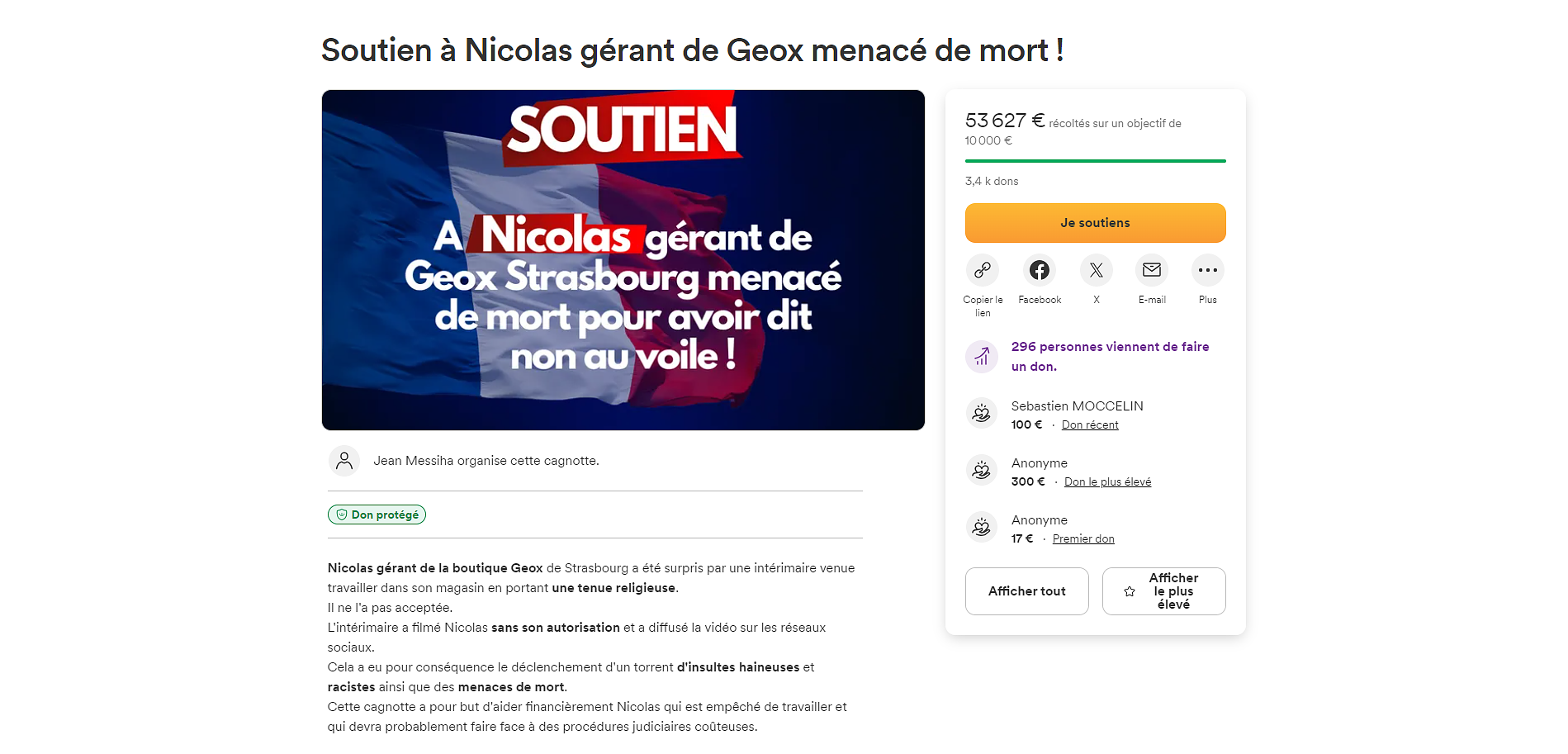It looks so convenient: Nowadays nobody has to leave the house to book a family holiday. The next trip is just a few cell phone clicks away. At least that's what the portals that abound on the Internet promise. However, they also set up plenty of traps into which the inexperienced consumer should fall. Here are the most annoying tricks - and tips on how to avoid disappointment.
You know that from Google: the best offers are at the top of the list of hits. Anyone who believes that about travel portals has only themselves to blame. At the top it is extremely rare who has the best offer. But often simply who pays the brokerage portal the highest commission. Or even simpler: who paid for the placement.
Stiftung Warentest complains again and again about the well-known portal Booking.com: hotels that want to be at the top of the list “sorted by: Booking.com recommends” have to pay the portal higher commissions. For this they get an additional “thumb” in the travel description. Other portals are no different.
Tip: If you don't want to be fooled, you can sort the hit list again, for example by price or guest rating. And visit at least one second price comparison portal.
Sales television invented it: the counter that runs along and says how many rheumatism blankets or wrinkle creams have already been sold. In this way, the viewer is enticed not to hesitate, but to quickly secure another one. Flight portals and hotel reservation platforms use the same tactics.
"Only two rooms available" is a popular saying. The customer should believe that he has to hurry. An ARD television team has proven that this is often a ruse. The reporters simply called the hotel - and could have booked dozens of rooms there without hesitation. The booking websites then made the excuse that the availability information only referred to their site.
Tip: Take your time when deciding.
Only today 47 percent cheaper. You have to hit it. But better not without comparing. The supposed discount promise is one of the most popular tricks of the portals. A fake: Because nowhere is it written which other offer the discount applies to.
In such cases, consumer advocates recommend: It is best to compare the offer with other hotels and with the hotel's website.
The button is very unobtrusively called "Check free places" or even more simply "To book". If you click on it, you will easily experience a blue miracle. Suddenly the promised price increases or there are only more expensive rooms. The portal operators justify this with the fact that the tour operators are turning the price screw at such short notice.
However, Stiftung Warentest accuses the travel portals of cheating on the prices themselves. Because it's true: once you've decided on an offer, you usually want it - if necessary a little more expensive.
Who hasn't experienced that? You can finally find a suitable trip that also remains within reasonable limits in terms of price. But then, during the last booking step on the Internet, another item is added: the payment fee.
Actually, the seller must offer at least one fee-free payment method; but then a completely unknown credit card is often given or, as with Fluege.de, the in-house Mastercard Gold. For all other payment methods, a substantial fee is charged. 30 euros are not uncommon.
The solution: Compare prices including payment fees and then book where the cheapest overall package is offered.
In the case of flight-only bookings, there is hardly any commission to be earned for the brokerage portals. Some therefore hold themselves harmless with additional sales, for example an insurance policy. Particularly perfidious: If the buyer opts out of the insurance, a bright red window with the warning "Caution - not recommended!" will pop up.
Anyone who hesitates has not only acquired unwanted insurance, but also a subscription. Because the contract is always extended by one year if it is not terminated in writing in good time. And who would have thought? From the second year, the subscription becomes significantly more expensive.
Tip: If you have accidentally booked such an insurance subscription, it is best to contact the Hamburg Consumer Advice Center. She explains how to get out of the subscription.
This is undoubtedly one of the greatest advantages of internet portals: Before booking, you can read how others have rated the trip or the hotel you are considering after their vacation. But here, too, tricks have been used for a long time. Hotels that want to look better can easily buy a positive booking comment from agencies like Fivestar Marketing from 20 euros or three Tripadvisor recommendations for 29.95 euros.
Tip: Look at ratings like Günther Jauch's public question - such answers can sometimes be wrong.
If you book a holiday home with a tour operator instead of a private person, you have a great advantage: instead of tenancy law, the much more consumer-friendly German travel contract law applies to you.
With Internet providers, however, it is important to take a close look, as determined by Stiftung Warentest. According to the fine print, Dutch law applies to bookings made with Booking.com. And anyone who wants to sue the private room broker Airbnb for damages has to do so in Ireland.
The verdict of the product tester is clear: "Consumers cannot be expected to do this in the event of damage." Tip: If in doubt, switch to a provider with German place of jurisdiction. Or you go straight to the travel agency - they have to point out such special features to their customers without being asked.

 Rishi Sunak wants a tobacco-free UK
Rishi Sunak wants a tobacco-free UK In Africa, the number of millionaires will boom over the next ten years
In Africa, the number of millionaires will boom over the next ten years Iran's attack on Israel: these false, misleading images spreading on social networks
Iran's attack on Israel: these false, misleading images spreading on social networks Iran-Israel: David Cameron wants the G7 to impose “coordinated sanctions” on Iran
Iran-Israel: David Cameron wants the G7 to impose “coordinated sanctions” on Iran New generation mosquito nets prove much more effective against malaria
New generation mosquito nets prove much more effective against malaria Covid-19: everything you need to know about the new vaccination campaign which is starting
Covid-19: everything you need to know about the new vaccination campaign which is starting The best laptops of the moment boast artificial intelligence
The best laptops of the moment boast artificial intelligence Amazon invests 700 million in robotizing its warehouses in Europe
Amazon invests 700 million in robotizing its warehouses in Europe Solar panels: French manufacturer Systovi announces the cessation of its activities due to “Chinese dumping”
Solar panels: French manufacturer Systovi announces the cessation of its activities due to “Chinese dumping” Tesla: canceled in court, Musk's huge compensation plan will again be submitted to shareholders
Tesla: canceled in court, Musk's huge compensation plan will again be submitted to shareholders Two, three or a hundred euros: who are the most generous customers with tips?
Two, three or a hundred euros: who are the most generous customers with tips? Boeing safety examined in US Senate, after whistleblower's revelations
Boeing safety examined in US Senate, after whistleblower's revelations Immersion among the companions of the Liberation
Immersion among the companions of the Liberation Provence-Alpes-Côte d’Azur releases several hundred thousand euros for the promotion of the work of Marcel Pagnol
Provence-Alpes-Côte d’Azur releases several hundred thousand euros for the promotion of the work of Marcel Pagnol A palm of honor distinguishes Studios Ghibli for all of their work
A palm of honor distinguishes Studios Ghibli for all of their work Gaby, a new play by Pagnol adapted into a comic strip
Gaby, a new play by Pagnol adapted into a comic strip Skoda Kodiaq 2024: a 'beast' plug-in hybrid SUV
Skoda Kodiaq 2024: a 'beast' plug-in hybrid SUV Tesla launches a new Model Y with 600 km of autonomy at a "more accessible price"
Tesla launches a new Model Y with 600 km of autonomy at a "more accessible price" The 10 best-selling cars in March 2024 in Spain: sales fall due to Easter
The 10 best-selling cars in March 2024 in Spain: sales fall due to Easter A private jet company buys more than 100 flying cars
A private jet company buys more than 100 flying cars This is how housing prices have changed in Spain in the last decade
This is how housing prices have changed in Spain in the last decade The home mortgage firm drops 10% in January and interest soars to 3.46%
The home mortgage firm drops 10% in January and interest soars to 3.46% The jewel of the Rocío de Nagüeles urbanization: a dream villa in Marbella
The jewel of the Rocío de Nagüeles urbanization: a dream villa in Marbella Rental prices grow by 7.3% in February: where does it go up and where does it go down?
Rental prices grow by 7.3% in February: where does it go up and where does it go down? Europeans: the schedule of debates to follow between now and June 9
Europeans: the schedule of debates to follow between now and June 9 Europeans: “In France, there is a left and there is a right,” assures Bellamy
Europeans: “In France, there is a left and there is a right,” assures Bellamy During the night of the economy, the right points out the budgetary flaws of the macronie
During the night of the economy, the right points out the budgetary flaws of the macronie Europeans: Glucksmann denounces “Emmanuel Macron’s failure” in the face of Bardella’s success
Europeans: Glucksmann denounces “Emmanuel Macron’s failure” in the face of Bardella’s success These French cities that will boycott the World Cup in Qatar
These French cities that will boycott the World Cup in Qatar Union Bordeaux Bègles-Clermont: at what time and on which channel to follow the Top 14 clash?
Union Bordeaux Bègles-Clermont: at what time and on which channel to follow the Top 14 clash? Football: Ada Hegerberg extends at OL until 2027
Football: Ada Hegerberg extends at OL until 2027 Basketball: suspended for life from NBA for fixing his match
Basketball: suspended for life from NBA for fixing his match Paris 2024 Olympic Games: boxer Estelle Mossely wants to parade on the Seine as a flag bearer
Paris 2024 Olympic Games: boxer Estelle Mossely wants to parade on the Seine as a flag bearer


















